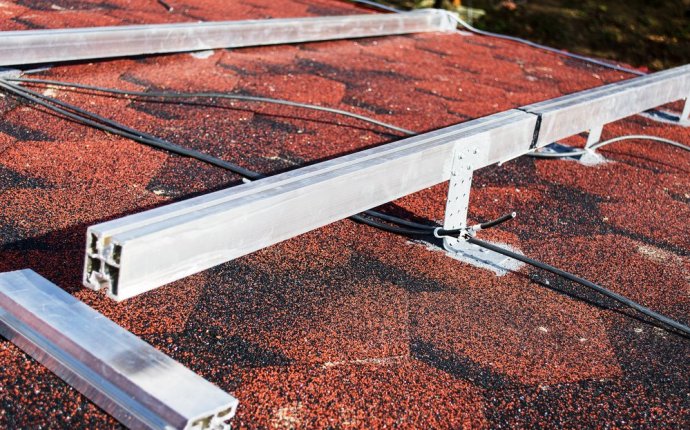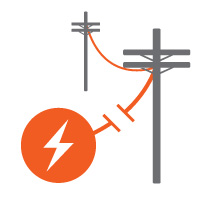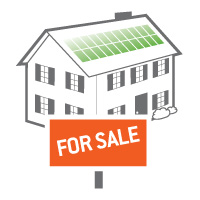
DIY photovoltaic Panels
 Do-it-yourself (DIY) solar is a booming industry, and there is no shortage of assembly kits available online. You can even buy affordably priced solar kits from local hardware stores like Home Depot.
Do-it-yourself (DIY) solar is a booming industry, and there is no shortage of assembly kits available online. You can even buy affordably priced solar kits from local hardware stores like Home Depot.
Whether you’re a solar veteran or a weekend warrior, the allure of these inexpensive photovoltaic (PV) panels is easy to understand. Why hire a professional to install your system when you can do the job yourself—for a fraction of the cost?
But is DIY solar really that much cheaper?
The short answer is no.
Worse still, you may end up leaving money on the table if you decide to do the job yourself.
Below are some of the hidden (and not so hidden) costs of DIY solar.
1. Zero Grid-Connectivity
The biggest downside of home solar kits is that you can’t grid-connect your system to the utility network. Given the electrical risks, only licensed professionals can connect your PV panels.
If you need 24/7 uninterrupted power, you’ll need to invest in expensive on-site solar batteries or some type of backup generator. These extra materials add to the total cost of your DIY solar system.
Moreover, your installation won’t qualify for many of the most lucrative solar incentives out there. Programs like net metering or state-level rebates often require that licensed contractors handle the installation (especially the grid connection).
Without these incentives, it will take much longer for your PV system to pay for itself. And the ROI from your investment won’t be nearly as high.
2. Resale Value & Time on Market
Installing solar panels can dramatically boost the resale value of your home or business. According to the nation’s largest professional association of real estate appraisers, the, for every $1 in annual electricity bill savings, a home’s value increases by about $20.
In other words,
- You save money from solar while living in your home.
- You make money from solar once it’s time to sell.
 And according to the US Department of Energy, solar-enabled homes can sell twice as quickly as their non-solar counterparts. The less time your property spends on the market, the fewer fees you’ll pay—and the more quickly you can turn a profit.
And according to the US Department of Energy, solar-enabled homes can sell twice as quickly as their non-solar counterparts. The less time your property spends on the market, the fewer fees you’ll pay—and the more quickly you can turn a profit.
However, these financial benefits only exist for professionally installed systems. When you install the panels yourself, appraisers and buyers can’t accurately assess the quality of your workmanship.
3. Voided Warranties
High quality solar PV panels come with 25-year warranties—sometimes longer. However, many manufacturers only back their products if they’re installed by licensed professionals. If you install the panels yourself, you may actually void the warranty—much like opening an iPad automatically cancels Apple’s coverage.
Most installations can last decades with minimal maintenance and upkeep. But in the rare event your DIY installation breaks down, you’ll have to pay for all repairs out-of-pocket. When you go the professional route, those repairs are covered by the manufacturer’s warranty, installer’s guarantee, or both.
4. DIY Solar Competes on Price, Not Quality
Although there are some respectable home solar kits on the market, most units compete on price. They use components that are good enough—but not great.
Worse still, DIY solar kits aren’t usually customizable. It’s one-size-fits-all, meaning that you can’t really improve the energy potential or orientation of your panels. Either the system fits on your existing rooftop, or it doesn’t.
By contrast, professional installations compete on quality. They often have more expensive components under the hood, but the output is much higher and lasts longer. And they can orient each panel to optimize system performance—even if your rooftop has obstacles or shading.
If you choose a reputable installer, you’ll also receive real-time monitoring that allows you to track your system’s performance. If something breaks, you’ll know it immediately.
DIY Solar Is More Expensive and More Dangerous
DIY solar is not the money-saver that many people think it is. It’s true that you save on labor and other “soft costs.” But you forfeit property value increases and decades of lucrative incentives. Repairs, maintenance, storage, and monitoring are also your responsibility.
One final consideration.
DIY solar isn’t simply more expensive, but it’s also more dangerous. After all, you’re working with high-voltage electrical equipment. Personal injury is always a risk when installing the panels (even for experienced professionals). And if improperly installed, your system could hurt someone or cause property damage years from now.
Most homeowners and businesses don’t want to take that risk. By choosing a professional solar installer, you reduce your liability and come out ahead financially. This is especially true if you work with our experienced installation team.









